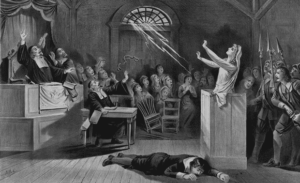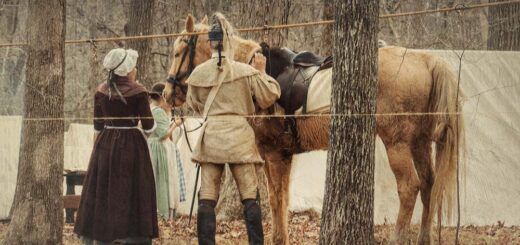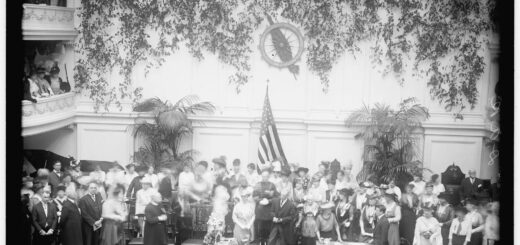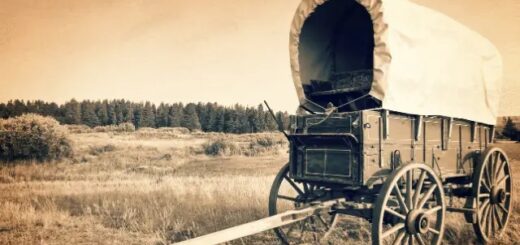Investigating Ancestry of Early American Witches: A Guide to Research and Discover

In 1692, in Salem (now Danvers), Massachusetts, 19 individuals were tried and executed for witchcraft, sparking widespread panic among Puritans living throughout New England. Although only 19 people were officially accused in Salem Village alone of witchcraft charges, more than 200 accusations overall occurred during that time period and included both African-Americans as well as Native Americans; charges were also made in Connecticut, Maryland, Massachusetts, New Hampshire, Pennsylvania Rhode Island Virginia against men and women alike for practicing black magic practices.
Your early American relatives could have been involved. AncestralFindings.com’s article, “Witches in the Family? Resources for Researching Families of the Salem Witch Trials,” notes this fact and notes, “[N]on all who were accused or accused others left descendants; however if one or more of your ancestors were accused or accusers in any capacity then you are part of one of the most notorious and fascinating periods in American history whose cause still causes great debate today.”
Follow some of the links below and you may gain more knowledge of your ancestor, their village or even their role during an unsavoury period in history.
Are You Confident That Your Family Was Involved with Salem Witch Trials? Since 1987, the Associated Daughters of Early American Witches (ADEARW) has provided membership opportunities to any woman aged 16 or over who can provide evidence that an ancestor accused or tried for practicing witchcraft was present during 17th Century Colonial America. According to its website, ADEARW serves its members by “providing opportunities to connect to those ancestors deemed guilty and supporting each other through education”.
Search and gather names of individuals accused of witchery in Colonial America that is now part of the United States; identify living female descendants who were accused prior to published records being maintained of them in these colonies.
Only a select few qualify to become members. The society provides a list of potential ancestors and spouses available for download, with blue text representing those executed or dying while waiting trial, while red indicates misidentified or unverified names.
ADEAW is always accepting applications with evidence showing one or more relatives were accused, tried, and/or convicted of witchcraft in 17th-century New England.
Witches of Massachusetts Bay Part history site and part travelogue, this superbly organized website “guides you” to tangible objects, documents, and historic places related to Massachusetts Bay colony’s 17th-century witch hunts. Genealogists may find especially useful the Research menu option with pages dedicated to year lists for names with timelines showing when each date fell and includes pages devoted to genealogy connections among families as well as connections among place names and family trees.
An impressive feature of the site are its individual pages for each village established in 17th-century Massachusetts Bay. Each of these towns provides information, sites and resources about itself as well as access points for research.
Salem Witch Museum Set within an historic church at the heart of Salem, this museum brings to life events surrounding the 1692 trials with different exhibits that recreate them, like one entitled “Witches: Evolving Perceptions,” where museum guides explain its role throughout time and throughout society.
The museum website contains many helpful resources for genealogists with ancestral connections in the area, with one particularly beneficial feature being their Witch Trials Self-Guided Tour. This interactive feature guides visitors through 15 villages affected by trials with information, photos, and points of interest at each stop along their route.
Salem Witch Trials Documentary Archive and Transcription Project
For serious researchers, the University of Virginia has assembled an expansive digital archive containing historical documents, letters, books and maps related to the Salem Witch Trials as well as transcriptions of handwritten court papers and letters related to these events.
Genealogists will find especially appealing the links to archives holding trial-related collections and the People page, which features key individuals involved with trials. Here, both accusers and defendants can be traced back to court records mentioning them via Find in Court Records links, while scholars interested in witchcraft studies might appreciate digitized versions of contemporary witchcraft-related novels both fiction and non-fiction published during that era.
No matter if your ancestor can be identified on official court documents or simply traced back to Massachusetts Bay Colony, one thing is clear: 17th-century Puritan New England has long been connected with Salem Witch Trials.



